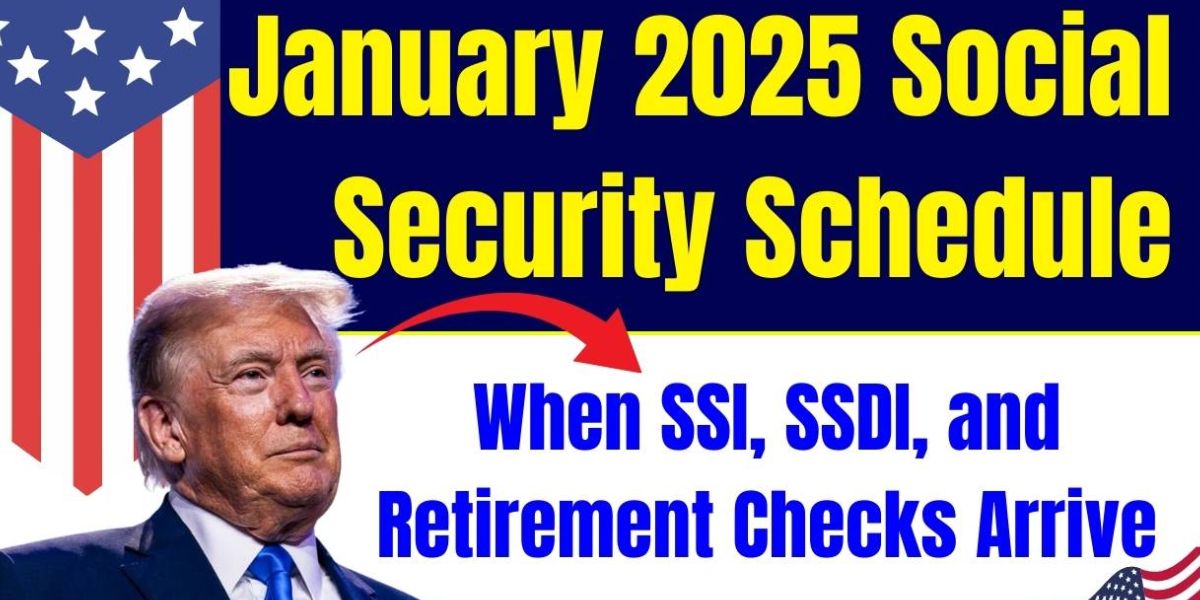The Social Security Administration (SSA) has already established the schedule for disbursing monthly benefits as of the start of 2025.
Social Security (retirement) and Supplemental Security Income (SSI) recipients are included in this schedule; their payments will be made on certain dates based on their individual circumstances and birthdate.
Every month on the third Wednesday, Social Security payments, including retirement, disability, and survivors (RSDI) benefits, are disbursed.
The beneficiary’s birthdate and whether or not claims were submitted after May 1, 1997, determine the precise payout date. The first Wednesday in January, the 3rd, is when those whose claims were submitted prior to that date will get their checks.
January is when Social Security benefits are paid out.
The following dates apply to RSDI beneficiaries (who applied after May 1997) who also receive Social Security Disability Insurance (SSDI) and retirement benefits:
Benefits from SSI were paid out on December 31, 2024.
- Prior to May 1997, if you were receiving Social Security or both Social
- Security & SSI: On January 3rd, Social Security is paid, and on December 31st, SSI.
- Born on January 8, between 1 and 10.
- Born on January 15, between January 11 and January 20.
- January 22, born between 21 and 31.
SSI is intended for low-income elderly persons and people of all ages with disabilities. Recipients typically get their benefits on the first of every month. However, SSI benefits will be paid on December 31, 2024, as January 1, 2025, is a holiday. Since January 1st is, of course, a holiday and the SSA does not deliver payouts on weekends,
SSI benefits will also be paid early in February. Due to February 1st falling on a Saturday, the cheque will be sent to the recipients on January 31, 2025.
2025 Brings Hope for Low-Income Workers in 21 States with Wage Increases
How to respond to late payments?
In the event that scheduled payments do not arrive on the anticipated date, the SSA suggests some actions. Beneficiaries should first verify whether there was a delay in receiving the electronic payment by contacting their bank or other financial institution.
You can call the Social Security Administration at 1-800-772-1213 (TTY: 1-800-325-0778) if the issue continues. Another choice is to go to your neighborhood Social Security office, where you can speak with an officer directly and get help solving your problem.
Millions of Americans who were previously ineligible will now be able to receive Social Security benefits.
The Social Security Fairness Act, which aims to help about three million Americans, including those who receive public pensions like teachers, firefighters, and postal workers, was approved by the U.S. Senate.
The law will eliminate the limitations that stopped these groups from getting full Social Security payments, and it is currently pending President Biden’s signature. Despite internal Republican disagreements, the idea received bipartisan approval with a vote of 76 to 20.
FEMA Approves Nearly $600 Million for North Carolina’s Helene Recovery
Twenty Republicans supported the plan, but another twenty opposed it, citing worries about the expense and the potential hastening of the Social Security trust fund’s insolvency. During the floor arguments, Senator Sherrod Brown stated, “All these workers are asking for is what they earned.”
Since the Senate had to reject four amendments and one budget order item before the deadline, passing the law was a last-ditch attempt. The bill was the final vote of the 118th Congress before a new session began on January 3. The House had already approved it in November.
The law will take effect retroactively in December 2023 once it is enacted. However, there may be delays in benefit calculations, particularly where retroactive payments are involved. Senator Bill Cassidy and other supporters argued that the bill is necessary to guarantee equity for retirees receiving public pensions.

